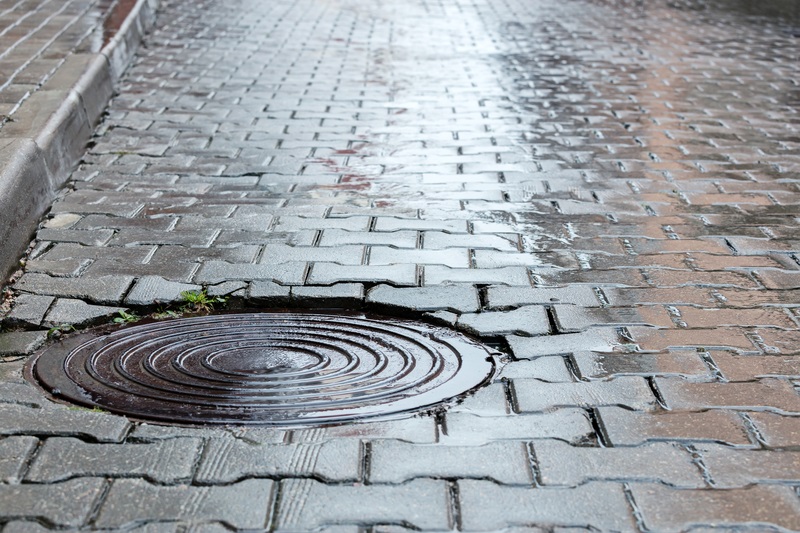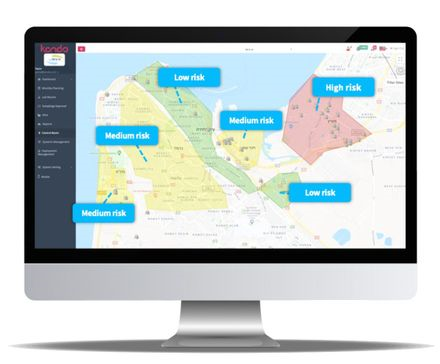
Photo: Sewer Image: Dreamstime
Sewer-sniffing IoT could provide early warning for COVID-19 outbreaks
29 June 2020
by Sarah Wray
Internet of Things (IoT) technology could be used in city sewers to detect emerging COVID-19 hotspots.
Following pilots, smart wastewater management company Kando says its system can act as a ‘blood test’ to help cities prevent a second wave of COVID-19 and support targeted actions rather than full-scale lockdowns. It identifies traces of the virus from human faeces in municipal wastewater.
Kando’s technology, which is already used for wastewater pollution detection in Modena, Italy; El Paso, Texas; Ventura, California; and Athens, Greece, uses sensors, autosamplers and controllers placed under manholes. Artificial intelligence (AI) algorithms pinpoint the optimum time to automatically collect samples.
Ari Goldfarb, CEO of Kando, told Cities Today that sewers are often neglected in smart city initiatives but shouldn’t be because: “Everything that happens in the city ends up in the wastewater system.”
Studies have shown that SARS-CoV-2 is shed in stools. Several cities and governments around the world are exploring sewage monitoring to help spot and control coronavirus outbreaks. Kando says its upstream measurement system is unique and provides more accuracy on the location and scale of outbreaks than has been possible before, and is ready to deploy.
Goldfarb explained: “The city sewage system is like a tree, with each house a leaf, each street a branch, and the trunk all the sewage gathered at the municipal waste treatment plant. Kando’s technology enables cities to identify RNA in wastewater and move upstream to pinpoint affected locations.”
Data analytics can show not only the precise area and location in a city where an outbreak is located but also the number of people affected.
“This is very exciting for us because now we have a situation where people are losing their jobs and having to stay at home, and that, of course, has a huge influence on our economy but also on our way of life,” Goldfarb commented.
He said using the system could help cities react “based on data” and take decisions to control the virus in a targeted way that will negatively impact the minimum number of people.
Pilot
After a pilot with the government of Israel to monitor six cities and three coronavirus hotels (where infected patients were quarantined) at a high level and achieving good results, the company launched a pilot in the city of Ashkelon with researchers from universities in Israel, Europe and the US. The city of 130,000 people was divided into wastewater collection ‘basins’ and samples from a coronavirus hotel which housed 250 infected patients were used as a reference source.
With its method of measuring upstream – from the wastewater facility towards the city – Kando, which was founded in 2012, can narrow down its readings to neighbourhoods and even city streets.
Following the pilots, Goldfarb said: “We have accomplished everything we need to do in order to commercialise. We are ready to go to market.”

Professor Nadav Davidovitch MD, MPH, Director School of Public Health, Ben Gurion University of the Negev, Chair, Public Health Forum, IMA, who has worked with Kando on the pilot, told Cities Today: “Identifying traces of the coronavirus in sewage is challenging due to the various kinds of substances in our sewage systems, including industrial waste, which can dilute or destroy remnants of the virus. But our unique methodology enables us to detect and trace the presence of the virus and calculate its concentration with these substances factored into the equation and integrating epidemiological evidence in order to pinpoint emerging COVID-19 hotspots. This can allow authorities to take actions to contain future outbreaks. This type of interdisciplinary science will continue to help disease containment methods moving forward.”
Goldfarb said Kando is in talks with several cities in Israel and Europe about deploying the system.
Researchers recently said that COVID-19 could have been present in Italy as early as December after they found traces of the virus in sewage water collected from Milan and Turin. Studies on monitoring sewage for COVID-19 prediction are underway in the UK, Japan, the US and elsewhere.
Image: Mrtwister | Dreamstime.com







